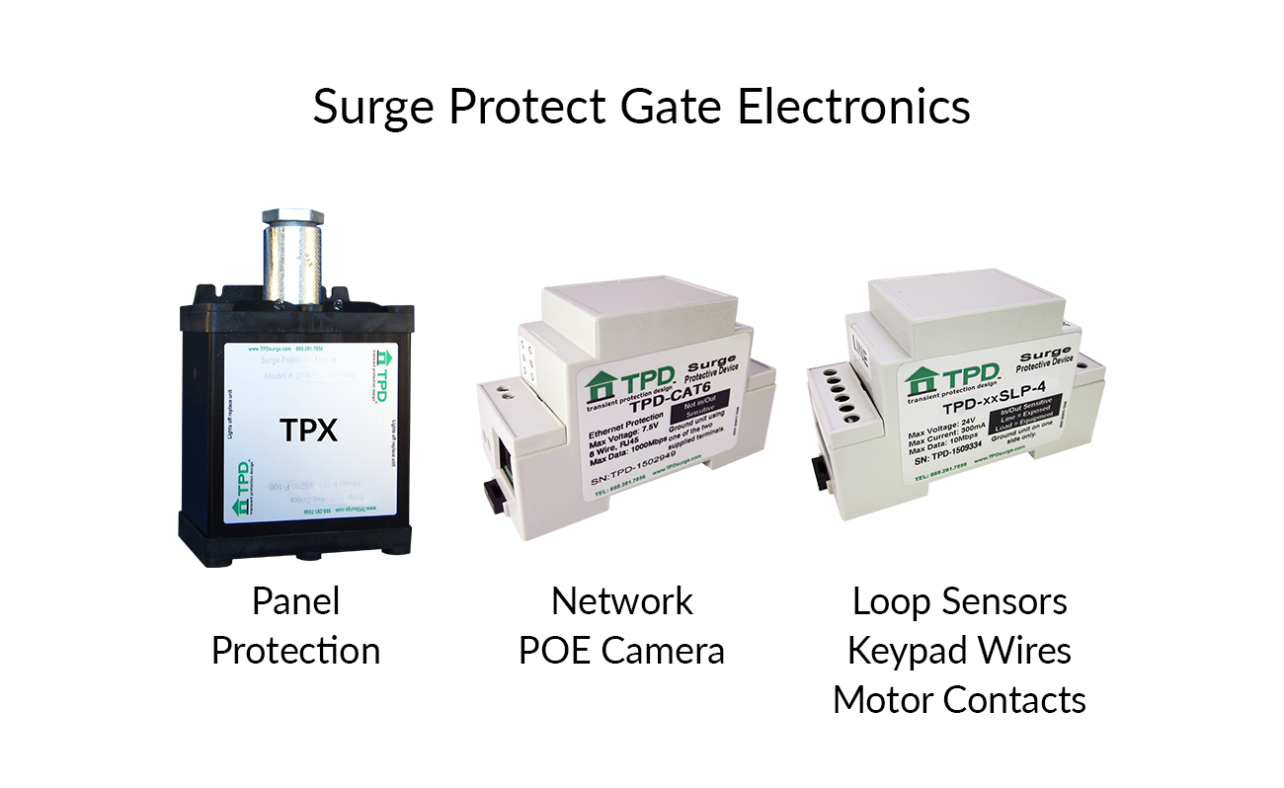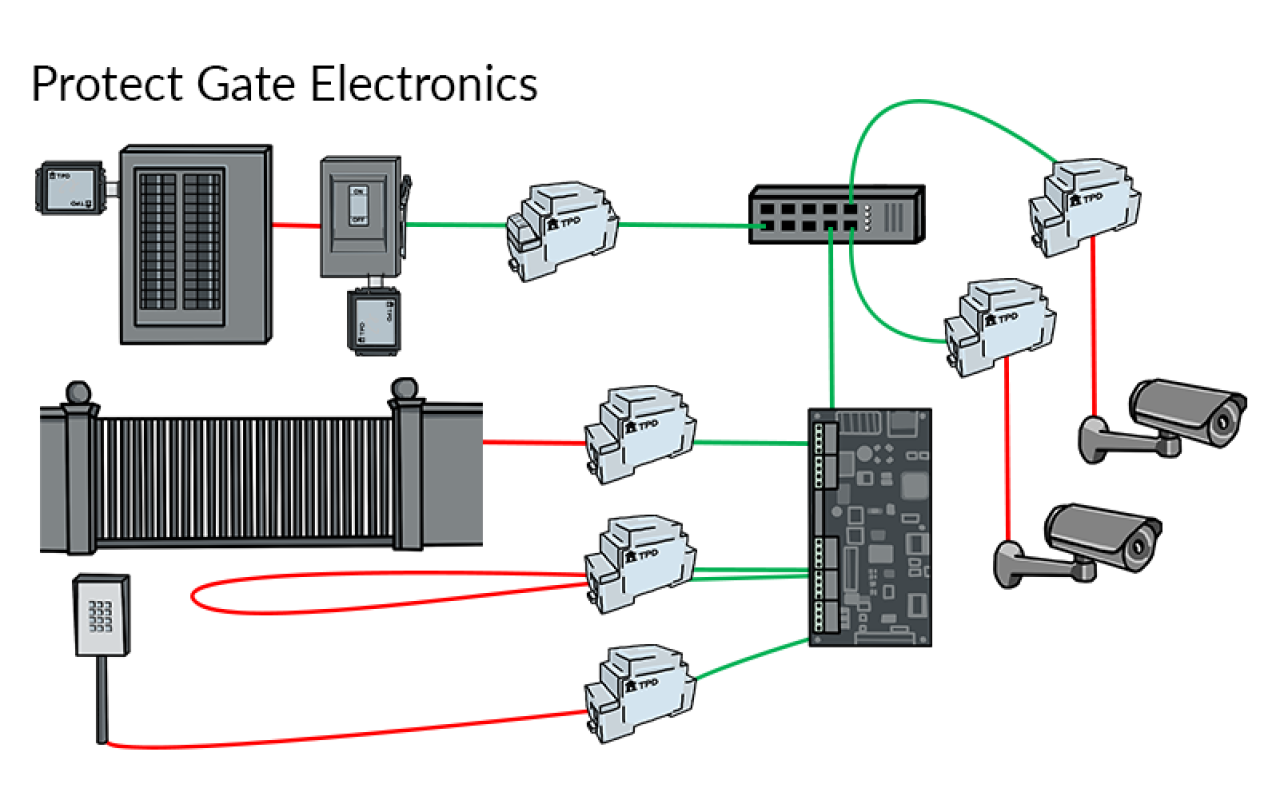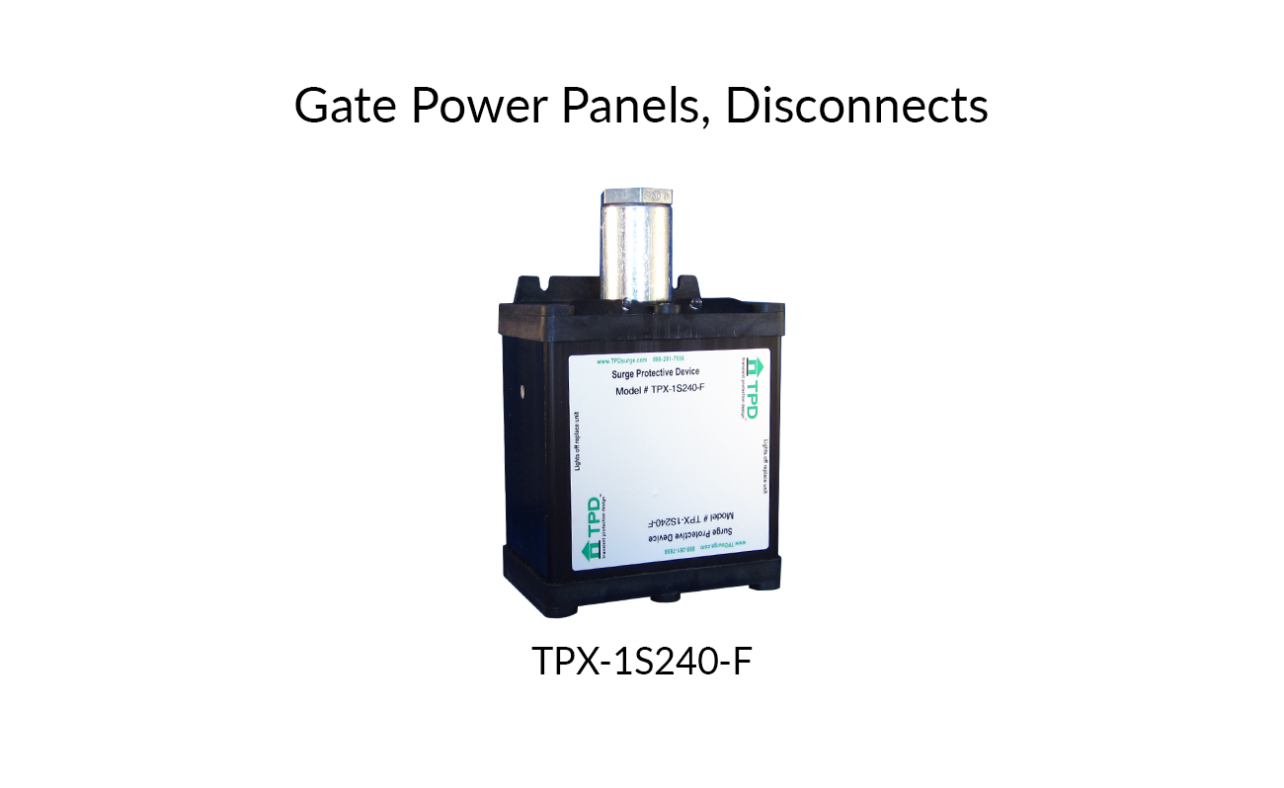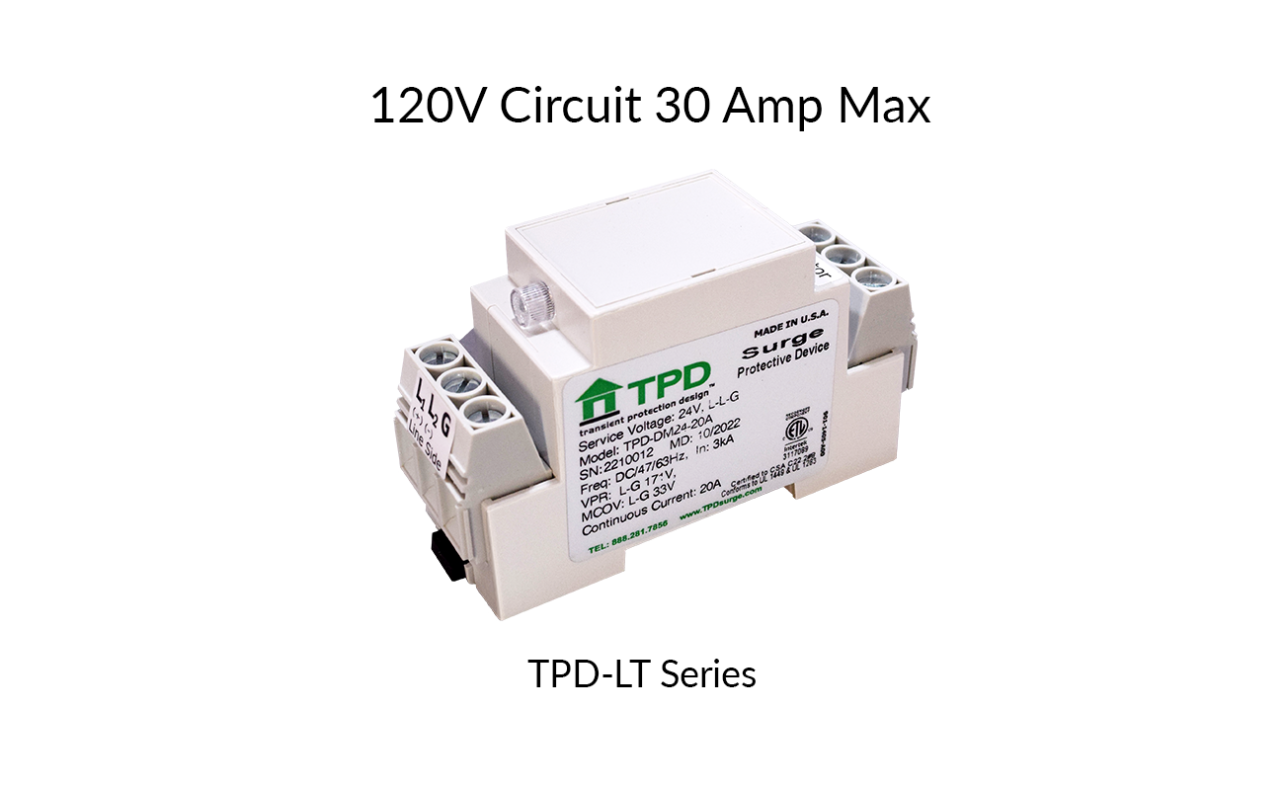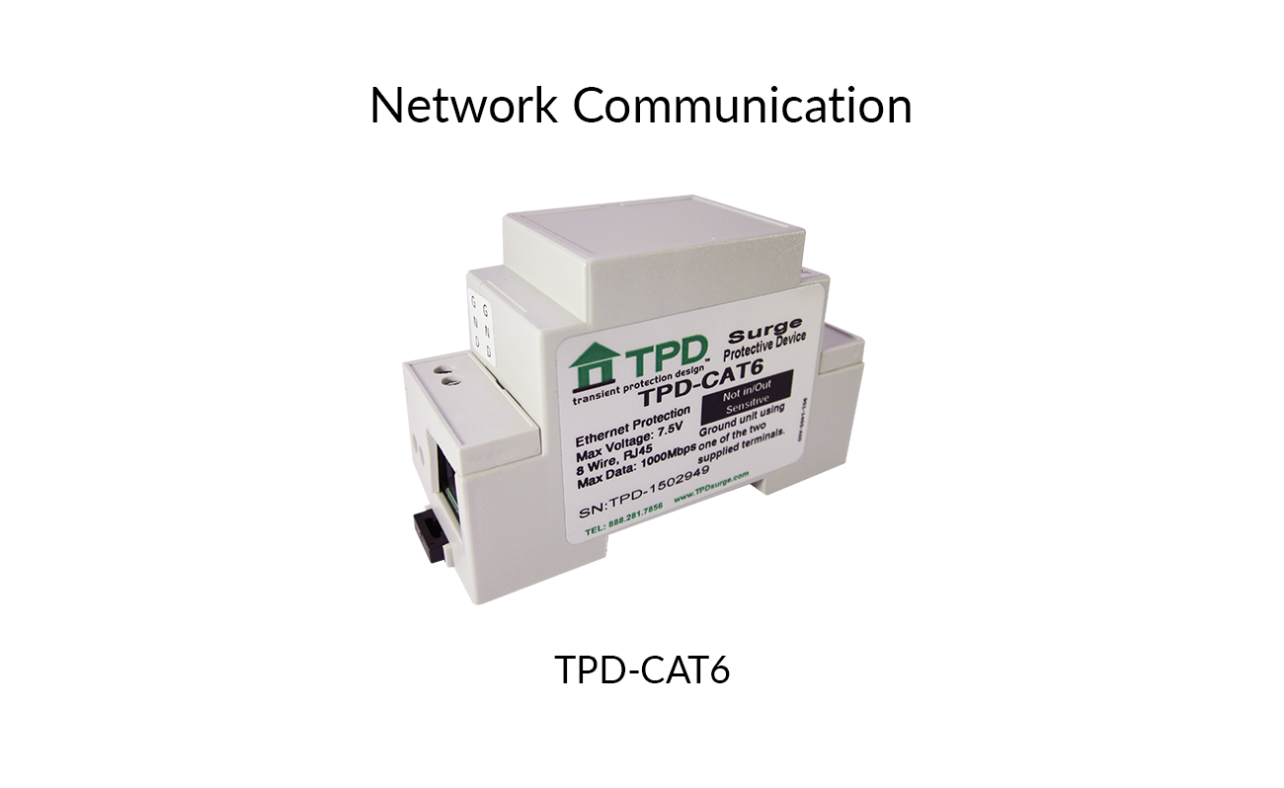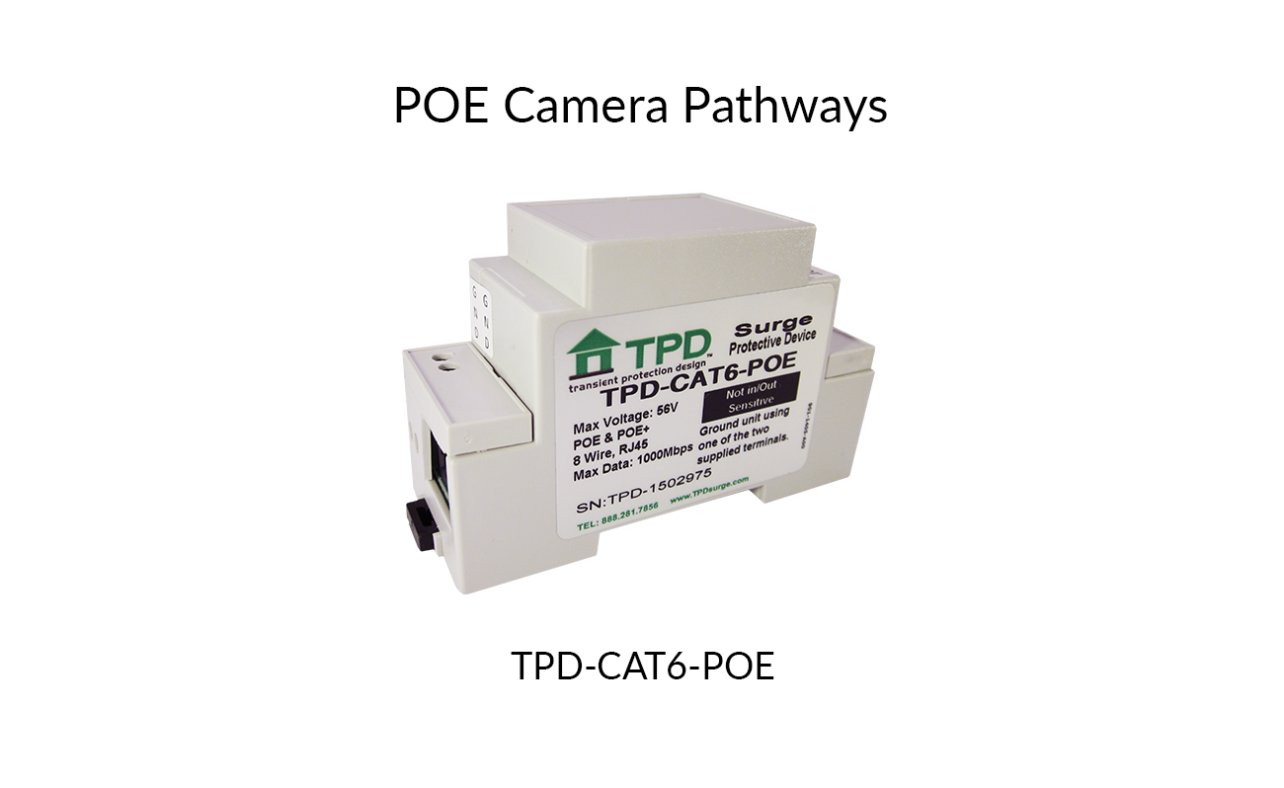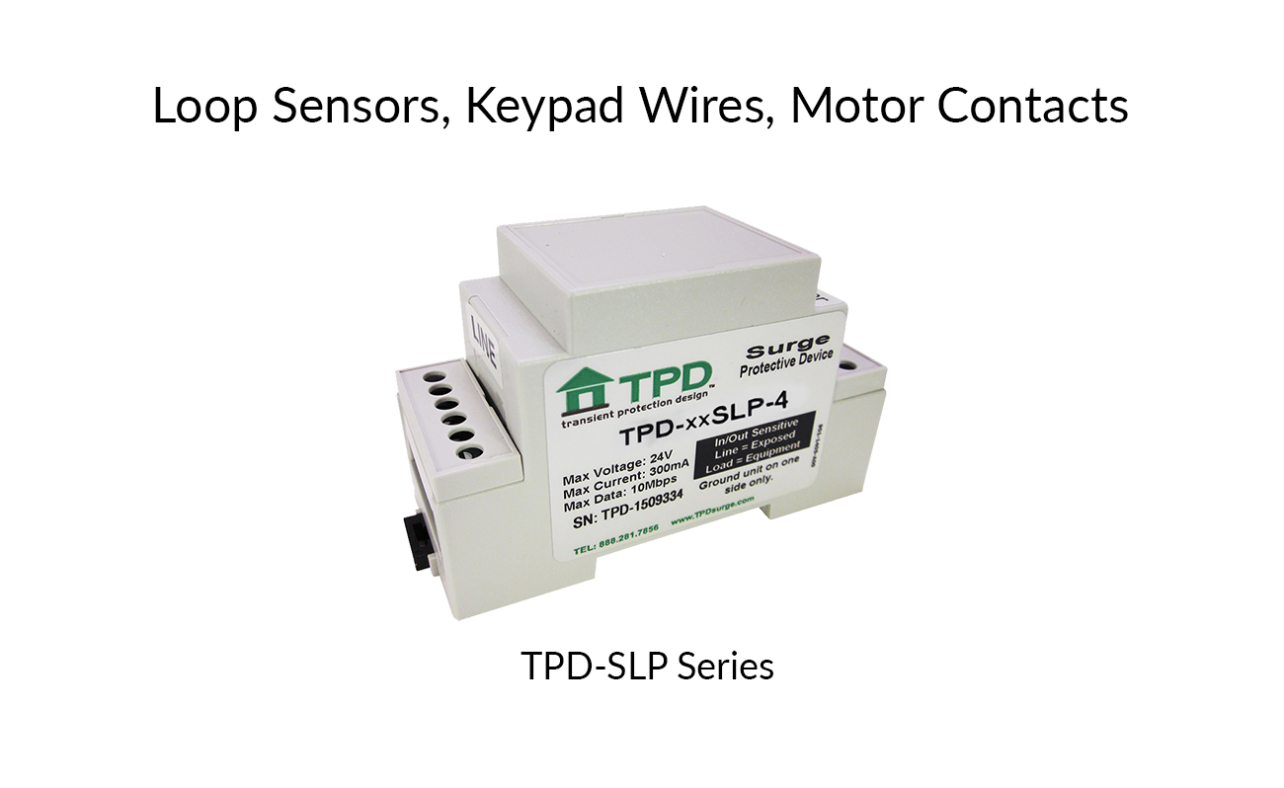Surge Protection for Gate Electronics
Surge protection for gates and gate electronics manufactured by companies such as 2N, DoorKing (DKS), LiftMaster, and FAAC Group unlocks the potential of your gate equipment. Use TPD surge protection devices to protect gates, keypads, and all copper pathways to and from the gate controller and opener (power, coax, and data). Investing in TPD surge suppression enhances convenience, safety, and financial well-being for homeowners and businesses alike.
TPX-1S240-F Power Panels, Disconnects
TPD-LT120-20A 120V Circuit 20 Amp Max
TPD-CAT6 Network Communication
TPD-CAT6-POE POE Camera Pathways
TPD-10SLP6 Loop Sensors
TPD-10SLP6 Keypad Wires
TPD-10SLP6 Motor Contacts
TPD eliminates transients & surges
which account for 85% to 95% of all
power issues, being the most common
and significantly the most damaging.
How to Surge Protect Gate Electronics
Surge Protect Gate Power Panels or Disconnects: TPX-1S240-F
Surge Protect 120V Power at Gate Cabinet: TPD-LT120-20A
Surge Protect Network Communication: TPD-CAT6
Surge Protect POE Camera Pathways: TPD-CAT6-POE
Surge Protect Loop Sensors: TPD-10SLP6
Surge Protect Keypad Wires: TPD-10SLP6
Surge Protect Motor contacts: TPD-10SLP6
Installation Note
Protect both ends of low voltage communication wires if both ends require protection.
Gate surge protection can be easy. Protecting the power feed to the gate is the first thought when protecting a gate. The gate could be powered by its own breaker panel or, more commonly, there is a 120V circuit coming from a nearby building. Protecting communication wires to the gate can be done at both ends of the wire depending on what you want to protect. The farther the gate is from the structure communicating with it, the more chances there are of having problems on that line.
The Importance of Gate Electronic Surge Protection
Convenience, Security, and Access Control
In residential settings, gates offer convenience and bolster security by regulating access to the property. Commercial facilities rely on gate equipment as a vital component of their security and access control systems. Surges can disrupt daily routines and compromise security, potentially granting unauthorized access. Surge protection ensures uninterrupted access control and peace of mind.
Protect Expensive Equipment
Gate systems feature intricate components like motors, control boards, and access control devices, all of which come with a hefty price tag for repair or replacement. Transient Protection Design surge suppression filters act as a guardian, shielding these valuable assets and reducing maintenance expenses.
Minimize Downtime
Gate equipment failures are inconvenient for homeowners and business owners alike. Unplanned downtime can disrupt daily operations. TPD surge protection steps in as a reliable guardian, ensuring that gates operate without interruption, preventing unnecessary downtime, and the disruptions that come with it.
Enhance Safety
Gate equipment often incorporates safety features, such as photoelectric sensors or safety loops, to prevent accidents. Surges have the potential to damage these critical safety components, jeopardizing the well-being of people and vehicles near the gates. TPD surge protection safeguards these safety systems, reducing the risk of accidents or injuries.
Preserve Property Value
Well-maintained gate systems not only enhance security but also elevate the overall value and curb appeal of residential properties. TPD contributes to the longevity and functionality of these systems.
Why Do Gates Get So Much Lightning?
Gates are notorious for having lightning and surge damage to their motors and keypads. Why is this? Having a gate connected to a home’s electrical system is about the same as having a lightning rod in the middle of the yard. It’s going to get hit by lightning. If not today, someday! The power from the house to the gate is a direct pathway to the unprotected gate motor. The further the gate is from the house, the more potential there is for lightning to strike. Whether there is a direct strike or a nearby strike (up to a ¼ mile away), lightning may get on to the power line from the house to the gate. These surges can go towards the house as well as the gate motor, so it is advisable to install a suppressor on the electrical panel in the house feeding the gate. Lightning surges can also get onto the communication lines to the gate damaging both the keypad and house-end electronics. Some gates have an even larger chance of getting struck by lightning because of the metal fence that is connected to the gate. That fence is another lightning attractor system. Gated communities are spending tens of thousands of dollars a year on service calls on gates for these unprotected pathways.

